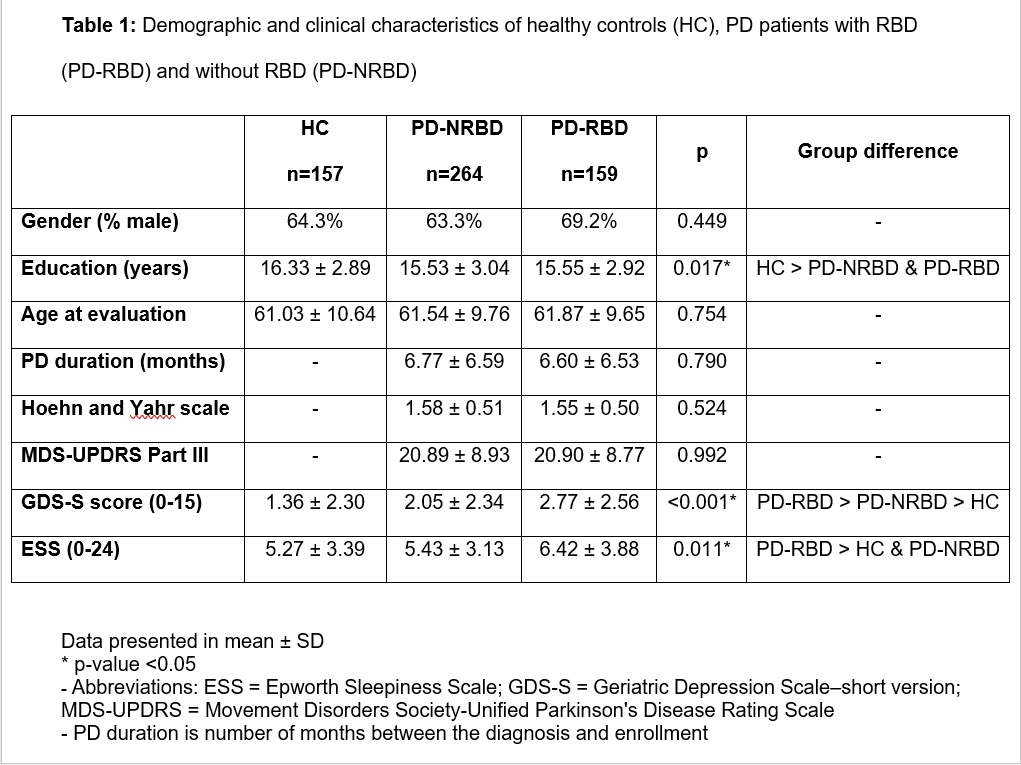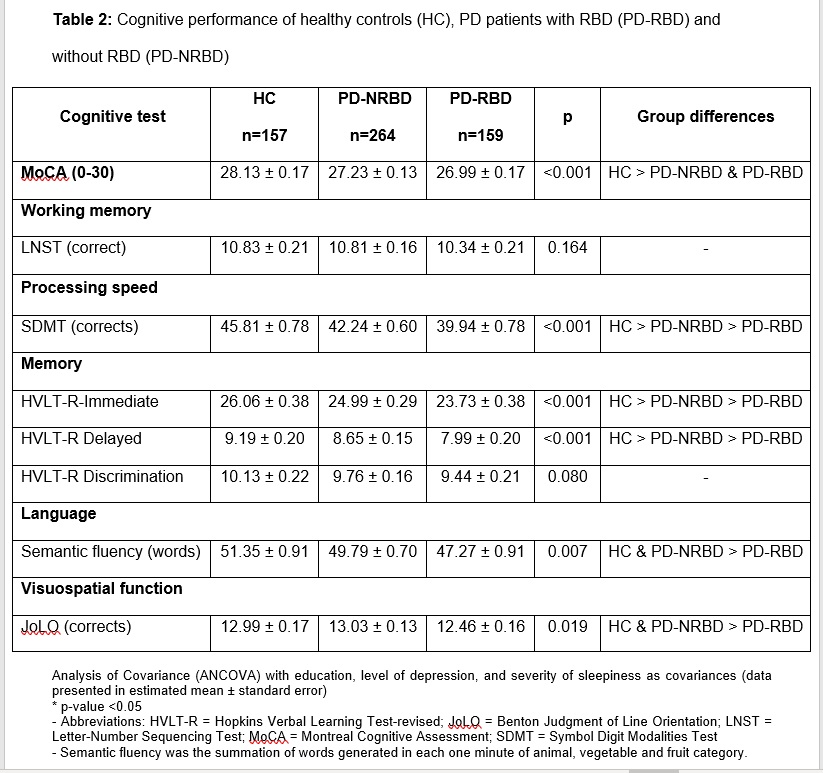Category: Parkinson's Disease: Cognitive functions
Objective: We aim to compare the cognitive performances of drug-naïve PD patients who had RBD (PD-RBD) to PD patients without RBD (PD-NRBD) and healthy controls.
Background: Previous study reported diminished posterior cortical perfusion in non-PD patients with idiopathic RBD and mild cognitive impairment. RBD is one of the risk factors for cognitive impairment in PD; however, how cognitive domains are differently affected by RBD in drug-naïve PD patients is still unclear. We hypothesize that drug-naïve PD patients with RBD will have more impairment of the posterior cortical-mediated cognitive domains than PD patients without RBD.
Method: From the Parkinson’s Progression Markers Initiative database, the study recruited 157 healthy controls without RBD (HC), 264 PD-NRBD and 159 PD-RBD patients. RBD was defined based on the RBD Questionnaire Score using ≥ 5 points as the cutoff point. The Montreal Cognitive Assessment was used for assessing global cognitive function. Four cognitive domains were evaluated by the Letter-Number Sequencing Test for working memory, the Symbol Digit Modality Test for processing speed, the Semantic Fluency Test for language function, the Benton Judgement of Line Orientation Test for visuospatial function, and the Hopkins Verbal Learning Test-revised for memory function.
Results: After adjusting age, gender, level of education, level of sleepiness, depression, duration and severity of motor symptoms, the PD-RBD patients showed significantly lower performance than the PD-NRBD and HC on the tests measuring language and visuospatial functions but no difference in the performance between the PD-NRBD and HC group on these cognitive domains. The PD-RBD poorer performed in the tests measuring processing speed and memory than the PD-NRBD while the PD-NRBD had lower performance on these domains than the HC. There was no difference in the global cognition between the PD-NRBD and PD-RBD but both groups had lower global cognition than the HC. There was no detectable cognitive impairment in working memory in both PD groups compared to HC.
Conclusion: While the global cognition and frontal-mediated processing speed are impaired in the early stage of drug-naïve PD patients, the presence of RBD is associated with further posterior cortical dysfunction resulting in further impairment of language and visuospatial functions.
To cite this abstract in AMA style:
A. Karukote, S. Thakolwiboon, P. Julayanont. The relationship between REM sleep behavior disorder and cognitive impairment in drug-naïve Parkinson’s disease [abstract]. Mov Disord. 2020; 35 (suppl 1). https://www.mdsabstracts.org/abstract/the-relationship-between-rem-sleep-behavior-disorder-and-cognitive-impairment-in-drug-naive-parkinsons-disease/. Accessed December 30, 2025.« Back to MDS Virtual Congress 2020
MDS Abstracts - https://www.mdsabstracts.org/abstract/the-relationship-between-rem-sleep-behavior-disorder-and-cognitive-impairment-in-drug-naive-parkinsons-disease/


